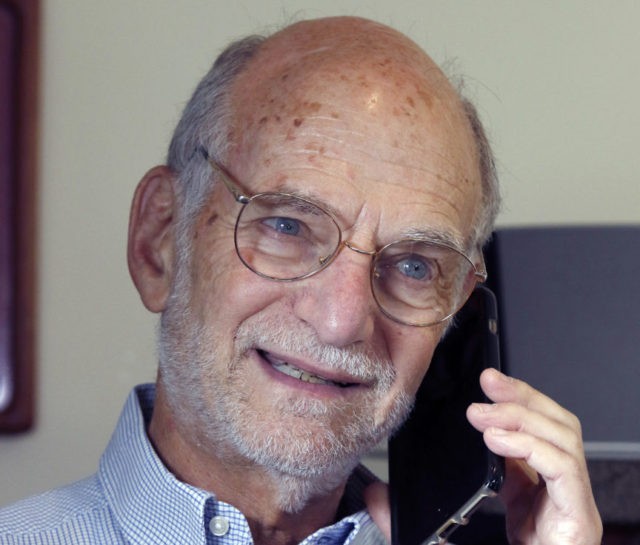STOCKHOLM (AP) — Three Americans won the Nobel Prize in Physiology or Medicine on Monday for their discoveries about the body’s daily rhythms, opening up whole new fields of research and raising awareness about the importance of getting enough sleep.
Jeffrey C. Hall, Michael Rosbash and Michael W. Young won the 9-million-kronor ($1.1 million) prize for their work on finding genetic mechanisms behind circadian rhythms — which adapt the workings of the body to different phases of the day, influencing sleep, behavior, hormone levels, body temperature and metabolism.
They “were able to peek inside our biological clock and elucidate its inner workings,” the Nobel citation said.
The work was done using fruit flies as model organisms.
“I am very pleased for the fruit fly,” Rosbash, a 73-year-old professor at Brandeis University, told The Associated Press. He said he got the call about the award just after 5 a.m.
“When the landline rings at that hour, normally it is because someone died,” he said. “”I’m still a little overwhelmed.”
But he added “I stand on the shoulders of giants. This is a very humbling award.”
Young is at Rockefeller University and Hall has been associated with the University of Maine.
The winners have raised “awareness of the importance of a proper sleep hygiene” said Juleen Zierath of the Nobel Assembly at the Karolinska Institute, which chooses the laureates. Carlos Ibanez, another assembly member, said the research was important in understanding how humans adapt to shiftwork.
Michael Hastings, a scientist at the U.K. Medical Research Council, said the discoveries had opened up a whole new field of study for biology and medicine.
“Until then, the body clock was viewed as a sort of black box,” Hastings told The Associated Press. “We knew nothing about its operation. But what they did was get the genes that made the body clock, and once you’ve got the genes, you can take the field wherever you want to.”
“It’s a field that has exploded massively, propelled by the discoveries by these guys,” he told the AP.
The awardees’ work stems back to 1984, when Rosbash and Hall, who was then also at Brandeis, along with Young isolated the “period gene” in fruit flies. Hall and Rosbash found that a protein encoded by the gene accumulated during the night and degraded during daytime. A decade later, Young discovered another “clock gene.”
“The paradigm-shifting discoveries by the laureates established key mechanisms for the biological clock,” the Nobel Assembly said.
“Our wellbeing is affected when there is a temporary mismatch between our external environment and this internal biological clock, for example when we travel across several time zones and experience ‘jet lag,'” the statement said. “There are also indications that chronic misalignment between our lifestyle and the rhythm dictated by our inner time keeper is associated with increased risk for various diseases.”
That misalignment may be associated with diseases including cancer and degenerative neurological conditions.
“Circadian dysfunction has been linked to sleep disorders, as well as depression, bipolar disorder, cognitive function, memory formation and some neurological diseases,” a Nobel background report said.
___
Frank Jordans in Berlin, Malcolm Ritter in New York and Bob Lentz in Philadelphia contributed to this story.
Follow the AP’s coverage on the Nobels here: https://apnews.com/tag/NobelPrizes

COMMENTS
Please let us know if you're having issues with commenting.